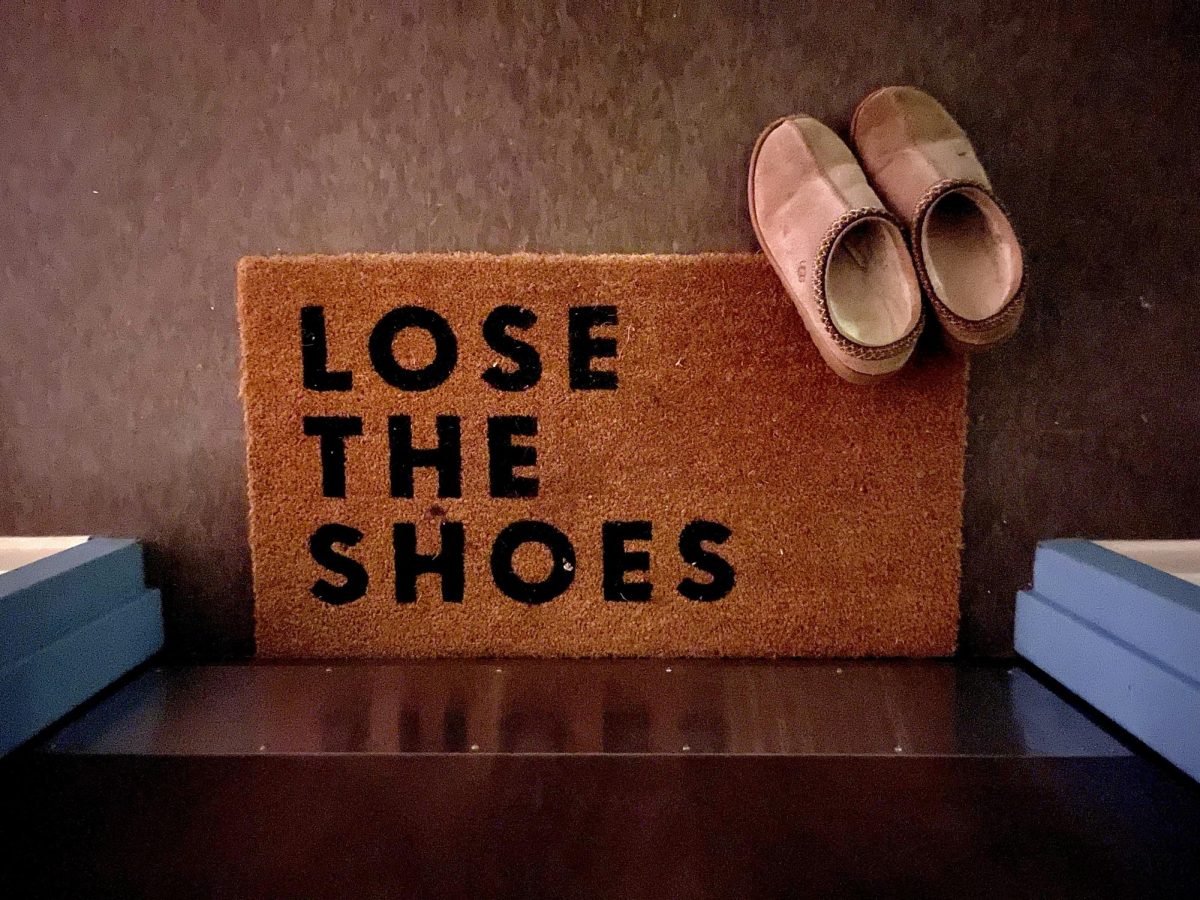When people visit your home, do you ask them to take off their shoes? As I walked around Central Park with an old friend from high school (who currently attends Hunter College Macaulay), I was asked that same question. I have always been a slipper person (something my Soviet parents instilled in me), but apparently, there are some die-hard slipper fans at Hunter College.
My friend visited her friend’s dorm room and while she was there, a maintenance worker came to fix the broken air conditioner. The girls in the room asked him to remove his shoes because they were trying to keep their floor clean. The maintenance worker was shocked, and rightfully so. He said he would come back later, but he never returned to fix the air conditioner. In my opinion, this story takes the whole “shoes on or off” debate way too far. That being said, how do you approach house rules in your dorm room?
Let us begin with cultural norms. Americans in particular are very relaxed about taking their shoes off inside. In most parts of the world, however, keeping your shoes on inside is considered disrespectful. In fact, in Russia, you will most likely be given a pair of slippers to wear inside the house! If you find yourself as a guest in this slipper-culture, it is also customary to bring a gift, whether it be flowers, dessert or a bottle of wine (or vodka!).
Speaking of drinks, different cultures have different rules for toasting. In Georgia, wine is meant to be consumed exclusively at the end of a meal during a toast, not during the meal, as is customary in America. In Japan and China, serving tea is extraordinarily ritualized and must be done in a specific way. For example, in China, tea ceremonies require “specific types of pots, cups, bamboo tools, tongs, tea towels, brewing trays and ‘scent cups’ for guests to smell before brewing.”
Similarly, breaking bread looks very different depending on where in the world you find yourself. In some countries, like Turkey, Japan and India, leaving food on your plate is a sign that you did not enjoy the meal. However, an empty plate in Iran and China suggests you are still hungry. Your host may keep piling food onto your plate until you cannot eat anymore.
To bring things back to the topic of shoes, there are a plethora of reasons someone could want a visitor to take off their shoes. Most of the time, the first reason people can come up with is a hygienic one. In a study on shoe soles as vectors for diseases, Alam et al. found that “39.7% (25 out of 63) of shoe bottoms collected from household[s] were contaminated with Cl. difficile.” Similarly, Schoder et al. found that “[l]isteria monocytogenes was prevalent in 40-80% of shoes of facility patrons.”
Outside of hygiene, taking off your shoes in someone’s home is a sign of respect. If a host asks you to remove your shoes, not removing your shoes can be viewed as extremely disrespectful. Michael Scott (Steve Carrell) in “The Office” probably said it best when he asked, “You cheated on me? When I specifically asked you not to?” Though this doesn’t entirely relate to taking your shoes off in someone’s house, the idea behind the quote is the same. If someone asks you to do something that’s important to them, you really should listen.
Now, my roommate and I have not had many guests in our dorm, but we always take off our shoes and put on our slippers when we enter our room and we would ask houseguests to do the same. We also ask that no guests sit on either of our beds or go through our snacks without asking first. These boundaries are essential for living in a shared space. Without boundaries, the world would be one accidentally eaten snack away from anarchy.
Whether or not you agree with the girls described in the introductory anecdote, I’m sure we can all agree that our and other people’s boundaries are paramount.
Emma Kelner, FCRH ‘29, is a undeclared major from Staten Island, New York.










































































































































































































